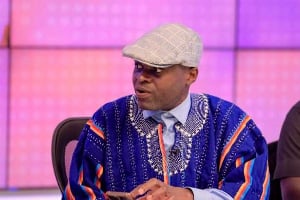The controversy surrounding a video depicting Sammy Gyamfi, Acting CEO of the Ghana Gold Board, gifting cash to self-proclaimed evangelist Nana Agradaa has ignited a debate about privacy rights and public accountability. Private legal practitioner Martin Kpebu argues that the recording and dissemination of the video constitute a clear breach of Mr. Gyamfi’s privacy, a right enshrined in Article 18 of the 1992 Constitution. Kpebu emphasizes the significance of the act occurring inside Mr. Gyamfi’s car, a space he defines as inherently private. He contends that the act of counting the money within the confines of the vehicle negates any argument of public display of wealth or opulence, suggesting that if such a display was intended, Mr. Gyamfi could have easily counted the money outside the car. Kpebu’s core argument centers on the violation of privacy, asserting that the recording and subsequent circulation of the video infringe upon Mr. Gyamfi’s fundamental right to a private life.
The crux of Kpebu’s argument rests on the location where the money was counted – inside Mr. Gyamfi’s car. He posits that this act distinguishes the situation from a public display of wealth, which could potentially attract legal scrutiny. Kpebu highlights the deliberate act of entering the car before counting the money, suggesting a conscious effort by Mr. Gyamfi to maintain privacy. He questions the motivation behind recording and sharing the video, emphasizing that the act itself took place within a private setting. This, according to Kpebu, underscores the violation of Mr. Gyamfi’s privacy and calls into question the legality of recording someone within their own vehicle without their consent.
Furthermore, Kpebu addresses the issue of the amount of money involved, stating that it is within Mr. Gyamfi’s financial capacity. He argues that the gifting of money, in itself, doesn’t constitute an offense, particularly if the amount is commensurate with the giver’s financial standing. He asserts that concerns would only be valid if the amount gifted was demonstrably beyond Mr. Gyamfi’s means, suggesting a potential source of illicit funds. This argument raises questions about the threshold for scrutiny in such cases and whether the mere act of gifting money, regardless of the amount, warrants public scrutiny and condemnation.
In contrast to Kpebu’s legal perspective, public opinion largely leans towards demanding sanctions against Mr. Gyamfi. Despite these calls, the Office of the President opted for a cautionary approach, accepting Mr. Gyamfi’s apology as sufficient corrective action under the newly implemented Code of Conduct. This decision sparked further debate, with some criticizing the perceived leniency shown to Mr. Gyamfi, citing his position of authority and the potential implications for public trust. Others argue that the President’s response aligns with the principles of the Code of Conduct, which prioritizes corrective measures over punitive actions. This discrepancy between public opinion and the official response highlights the complexities surrounding issues of public accountability and the application of newly established codes of conduct.
The case of Sammy Gyamfi and the circulating video illuminates the delicate balance between an individual’s right to privacy and the public’s right to hold public officials accountable. On one hand, the surreptitious recording and dissemination of the video raise concerns about the protection of individual privacy, particularly within the confines of a personal vehicle. On the other hand, the act of gifting a substantial sum of money to a controversial figure like Nana Agradaa raises questions about ethical conduct and the potential for undue influence, especially considering Mr. Gyamfi’s position as a public official.
This incident serves as a crucial test case for the newly launched Code of Conduct, raising questions about its efficacy and its ability to strike a balance between accountability and fairness. The public debate surrounding the issue highlights the evolving understanding of privacy in the digital age and the challenges of applying traditional legal frameworks to new forms of media and communication. Furthermore, it underscores the importance of establishing clear guidelines for public officials regarding their interactions with potentially controversial figures and the ethical implications of such interactions. The outcome of this case and the subsequent interpretations of the Code of Conduct will likely set a precedent for future incidents involving public officials and the scrutiny of their private lives.


